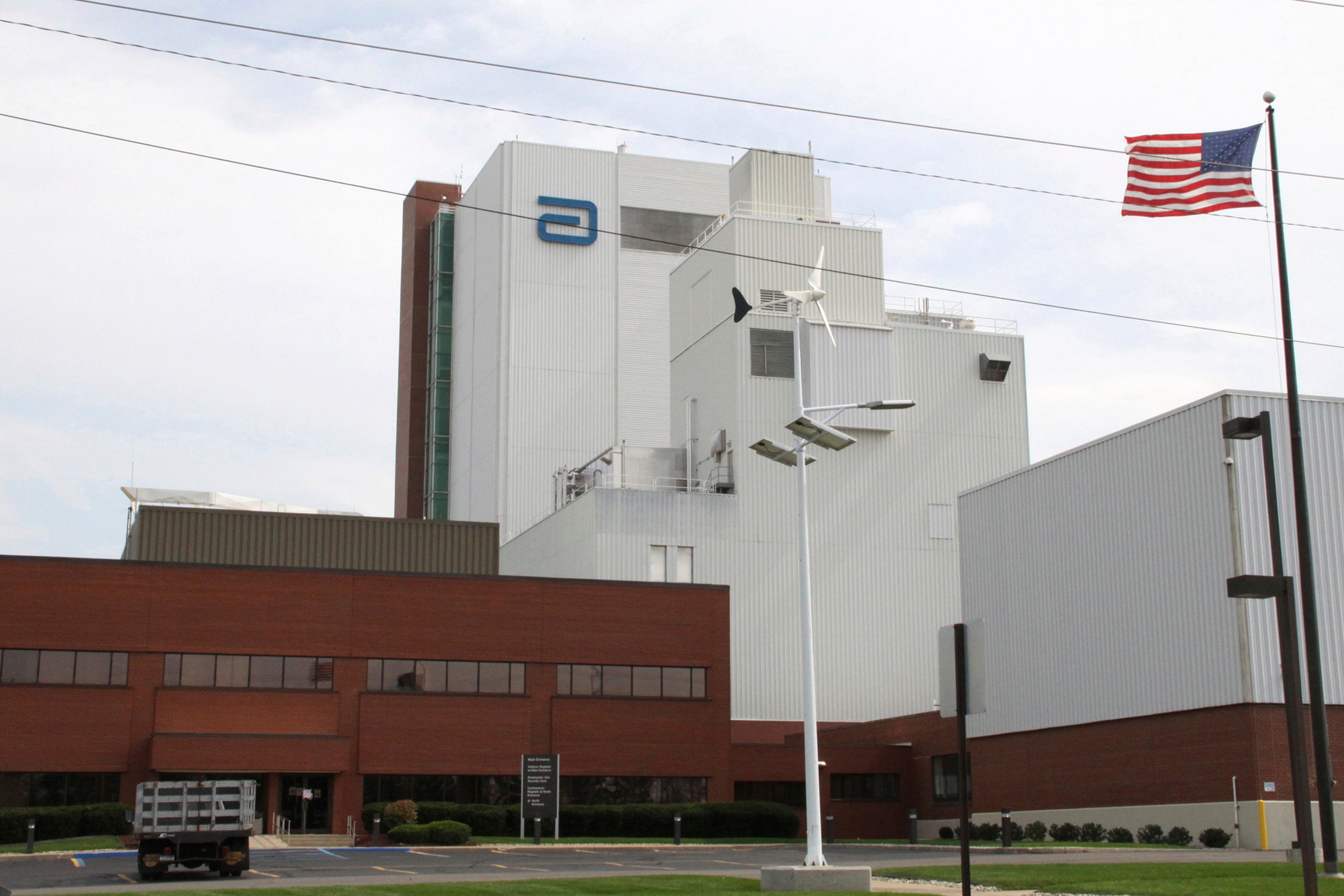Production resumes at troubled Abbott baby formula factory
Abbot Nutrition says baby formula production has resumed at the Michigan plant whose February shutdown over contamination contributed to a national shortage

Your support helps us to tell the story
From reproductive rights to climate change to Big Tech, The Independent is on the ground when the story is developing. Whether it's investigating the financials of Elon Musk's pro-Trump PAC or producing our latest documentary, 'The A Word', which shines a light on the American women fighting for reproductive rights, we know how important it is to parse out the facts from the messaging.
At such a critical moment in US history, we need reporters on the ground. Your donation allows us to keep sending journalists to speak to both sides of the story.
The Independent is trusted by Americans across the entire political spectrum. And unlike many other quality news outlets, we choose not to lock Americans out of our reporting and analysis with paywalls. We believe quality journalism should be available to everyone, paid for by those who can afford it.
Your support makes all the difference.Production of baby formula has resumed at the Abbott Nutrition factory in Michigan whose February shutdown over contamination contributed to a national shortage, a company spokesman said.
Damage from severe thunderstorms including flooding had forced the Sturgis plant to halt operations in mid-June just two weeks after restarting production with additional sanitizing and safety protocols.
Production of EleCare, a specialty formula for infants with severe food allergies and digestive problems, was restored at Sturgis following a July 1 reboot, said Abbott spokesman John Koval.
“We are working to restart Similac production as soon as we can. We’ll provide more information when we have it,” he said via email.
Abbott recalled several leading brands of formula in February, including Similac. That squeezed supplies already been strained by supply chain disruptions and stockpiling during COVID-19 shutdowns.
The shortage was most dire for children with allergies, digestive problems and metabolic disorders who rely on specialty formulas.
President Joe Biden’s administration has since eased import rules for foreign manufacturers, airlifted formula from Europe and invoked federal emergency rules to prioritize U.S. production.
Abbott is one of just four companies that produce about 90% of U.S. formula. Koval declined to say how much of Abbot's overall U.S. supply of infant formula is produced at the Sturgis plant.
The plant was closed in February after the Food and Drug Administration began investigating four bacterial infections among infants who consumed powdered formula from the plant. Two of the babies died. The company says its products have not been directly linked to the infections, which involved different bacterial strains.
FDA inspectors eventually uncovered a host of violations at the plant, including bacterial contamination, a leaky roof and lax safety protocols.
On Wednesday, the Food and Drug Administration announced plans to help overseas makers of infant formula that have sent supplies, under emergency approval to address the shortfall, secure long-term authorization to market their formula in the U.S. The plan is to provide American consumers with more choices and make supplies more resilient against current or future shortages.
FDA commissioner, Dr. Robert Califf, and Susan Mayne, the director of the agency’s Center for Food Safety and Applied Nutrition, said in a statement that the Sturgis plant shutdown "compounded by unforeseen natural weather events, has shown just how vulnerable the supply chain has become.”